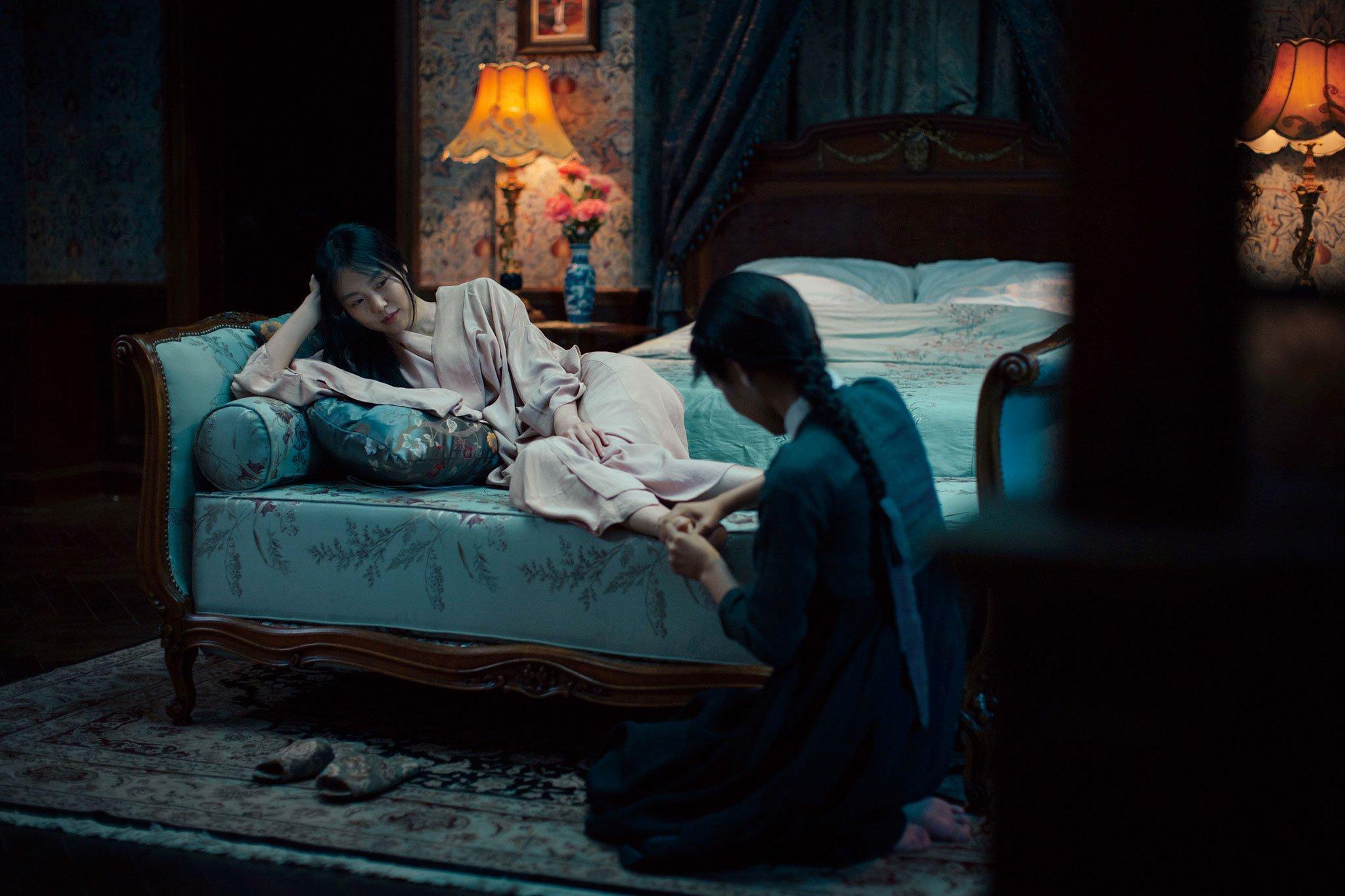The Handmaiden review: A wonderfully decadent if slippery experience
This is richer fare than the vengeance movies which shot South Korean filmmaker Park Chan-wook to international acclaim

Your support helps us to tell the story
From reproductive rights to climate change to Big Tech, The Independent is on the ground when the story is developing. Whether it's investigating the financials of Elon Musk's pro-Trump PAC or producing our latest documentary, 'The A Word', which shines a light on the American women fighting for reproductive rights, we know how important it is to parse out the facts from the messaging.
At such a critical moment in US history, we need reporters on the ground. Your donation allows us to keep sending journalists to speak to both sides of the story.
The Independent is trusted by Americans across the entire political spectrum. And unlike many other quality news outlets, we choose not to lock Americans out of our reporting and analysis with paywalls. We believe quality journalism should be available to everyone, paid for by those who can afford it.
Your support makes all the difference.Park Chan-wook, 156 mins, starring: Min-hee Kim, Jung-woo Ha, Jin-woong Jo, Tae-ri Kim, Hae-suk Kim, So-ri Moon
Octopuses feature in passing in The Handmaiden, a character’s fingers are chopped off and an old man gets up to acts of unspeakable depravity in his basement. It may seem we are right back in the miasmatic world of the vengeance movies that first made South Korean director Park Chan-wook an international name more than a decade ago. This, though, is richer and headier fare. Loosely adapted from Sarah Waters’ Victorian crime novel, Fingersmith, it’s a complex and wonderfully decadent erotic melodrama.
As ever, Park combines delicacy and grotesquerie in often jaw-dropping fashion. This is a period drama, set in 1930s Korea, with the country under the occupation of the Japanese (roughly the same period as in Kim Jee-woon’s recent thriller The Age Of Shadows). Both films emphasise the vexed nature of the relationship between the Koreans and their Japanese rulers. The distrust and bad faith on a national level is mirrored by the personal relationships between the characters, who are always plotting against one another, even as they become lovers and confidantes. Here, they switch languages constantly. (The subtitles in Japanese are in yellow and any Korean dialogue is in white.)
Sookhee (Kim Taei-ri) is the young Korean pickpocket and street urchin sent to the household of Kozuki (Cho Jin-Woong), a wealthy old Korean who despises his homeland and tries to pass himself off as Japanese. He has a niece, Lady Hideko (Kim Min-hee), who is beautiful but seemingly very naive. Sookhee has been employed as Hideko’s handmaiden. In fact, she is working under the instructions of the handsome young spiv Fujiwara (Ha Jang-woo), a poor Korean from a rural background who is passing himself off as a Japanese aristocrat. His long-term plan is to steal away Hideko, marry her and thereby get hold of the uncle’s fortune. Sookhee’s job is to “ripen” Hideko so that she is ready for Fujiwara to pluck her.
This is a story in which everyone is deceiving everyone else. The only feelings that don’t seem feigned are those between the lady and her handmaiden, who quickly become lovers. “Ladies truly are the dolls of maids,” the former pickpocket reflects as she goes about seducing Hideko.
Kozuki lives in a beautiful mansion which is designed partly along the lines of a Downton Abbey-style English country house, complete with lavishly furnished drawing rooms and libraries, and partly in Japanese minimalist fashion. He’s a very sick-minded individual, a book lover with sado-masochistic tastes who has been bringing his niece up to become his own bride. He dresses in outlandish fashion, wearing leather gloves and little round glasses.
Outwardly, we are in a world of elegance and beauty. The women dress as if they’’re geishas, on leave from a Mizoguchi movie. They wear multi-coloured kimonos and their hair and make-up are intricately detailed. The gardens of the house are filled with cherry blossoms. In Park’s universe, beauty and obscenity sit side by side. He takes a perverse pleasure in having his characters, who seem so sophisticated and refined, suddenly starts swearing or behaving in a self-consciously crude fashion.
The three-part structure risks becoming contrived. For the film to work, we have to believe in each new version of events, even if it flatly contradicts the one that has gone before. The symbolism is sometimes a little obvious too. Just in case we don’t realise that Hideko is like a piece of fruit ready to be savoured, Park will throw in an image of someone eating a peach that is so ripe that liquid gushes out the moment it is first bitten. Arguably, the structure would lend itself better to a TV drama than a feature film. Nonetheless, The Handmaiden makes for very heady viewing. One moment, it plays a like an upmarket costume drama. The next, it slips into the realm of erotic film noir. Park can’t resist throwing in a few of the shock tactics with which he made his name – sudden outbursts of violence or scenes of Kozuki behaving like an oriental version of Nabokov’s Humbert Humbert in Lolita.
Alongside the seamier, more exploitative moments are flights of lyricism in which the characters behave with extraordinary tenderness toward one another and seem to expose their innermost feelings. Even here, though, we’re never quite sure whether their emotions are for real or if they’re still putting on an act. That’s what makes the film such a slippery but pleasurable experience.
Join our commenting forum
Join thought-provoking conversations, follow other Independent readers and see their replies
0Comments